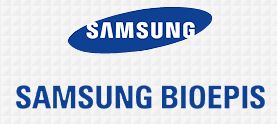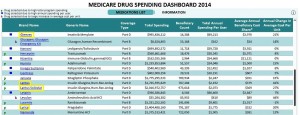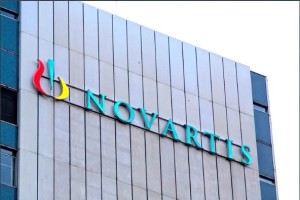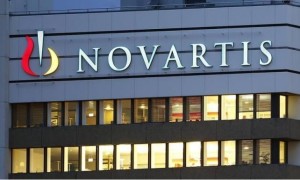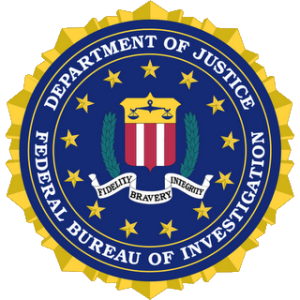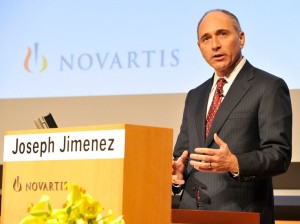- Samsung and Biogen win first EU approval for an Enbrel copycat (fiercebiotech.com)Samsung Bioepis Enters the European Biopharmaceutical Market with Benepali®, the First Fusion Protein Biosimilar Approved by the European Commission (finance.yahoo.com)
A joint venture between Biogen and South Korean giant Samsung won Europe's first approval for a lower-cost version of Amgen and Pfizer's blockbuster Enbrel, planning to launch its injection in the coming weeks...The two companies, doing business as Samsung Bioepis, convinced European regulators to clear their Benepali for all of Enbrel's approved indications, including rheumatoid arthritis, psoriatic arthritis, spondyloarthritis and plaque psoriasis…As for Amgen...believes its hold on Enbrel's U.S. rights will keep it safe from a biosimilar challenge in the coming years. In 2011, Amgen secured new patents related to the antibody that the company says will protect the treatment from competition through 2029. Novartis, leading the charge among Enbrel biosimilars developers in the U.S., is hoping to win approval for its version of the treatment this year while mounting a legal challenge on those patents.
- Big Pharma’s steady double-digit price hikes cost Medicare billions (fiercepharma.com)Medicare drug costs rose sharply in 2014 (statnews.com)Medicare Drug Spending Dashboard 2014 (cms.gov)The CMS Blog: Medicare Drug Spending Dashboard (blog.cms.gov)
Sanofi, Pfizer, Novartis and peers ratchet up prices on blockbuster meds to reap big sales gains…a new report from the Center for Medicare and Medicaid Services puts some numbers to that claim. They won't resolve the debate over which price increases are "justified," but they do highlight some commonly used meds whose sales growth (grew)--and Medicare spending--depends more on rising prices than on rising demand.
- Vimovo...price hike at 543% for 2014... boost helped send spending on the drug up past $38 million from just over $7 million in 2013…patients using the drug only grew by 8%.
- Targretin...unit cost rose by 123% last year, to $145.65...CMS shelled out $73.5 million, more than double its 2013 spending…increase in patients of just 12%.
- CMS laid out $1.725 billion for Lantus last year, a $400 million increase year-over-year despite a 6% decline in patient count.
- CMS spent another $2.02 billion for Lantus Solostar, an increase of almost $700 million, or about 50% year-over-year...patient growth amounted to 13%.
- Gleevec sent CMS' unit costs up by 21% last year, to $179.93...that pushed spending per user to $69,212. The number of patients using the drug ticked upward by 5%...spending on the drug grew by 28%, to almost $1 billion.
- Lyrica...up in price...about 20%...to $4.28 per pill. Medicare spent $1.4 billion on the drug in 2014, up from just over $1 billion in 2013...patients grew by 7%.
When Sanofi, Pfizer and Novartis were raising their prices...they were fighting to fill patent-cliff sales gaps and scrambling to refill their pipelines of prospective new drugs. They were also spending billions on R&D--and on stock buybacks, dividends and other shareholder-friendly moves. Horizon and Valeant, by contrast, aren't big R&D spenders; Valeant, at least, has defended its price hikes as necessary to deliver returns to shareholders.
- FDA says Novartis plant in India backdated data and withheld info (statnews.com)Regulating India's Generic Drug Industry (podcast 13:46) (soundcloud.com)
Last month, Novartis disclosed that it received a warning letter from the Food and Drug Administration about manufacturing issues at two facilities in India that are operated by its Sandoz generic drug unit…At the time, the company noted it was working closely with the FDA to resolve the problems. But Novartis never actually specified what bothered the agency. Now, the warning letter has been posted on the FDA website, and the infractions are concerning, especially given that the plants are run by one of the world’s largest suppliers of generic medicines…The disclosure comes amid ongoing FDA scrutiny of overseas manufacturing plants, particularly in India, where a string of drug makers has failed inspections and had products banned from the US. The Indian pharmaceutical industry is furious that the agency appears to be singling out its ranks for infractions; however the Sandoz letter indicates the FDA is not confining its reviews to India’s domestic drug makers…A key issue that alarmed the agency during its August 2014 inspections was the integrity of the data Sandoz was collecting…“Backdating … records is unacceptable,” the FDA wrote in its Oct. 22 warning letter. The agency also expressed concern that Sandoz failed to demonstrate the extent to which such practices may be widespread and — this is significant — whether previous data is even reliable.
- Novartis shells out $390M to settle specialty pharmacy kickback claims (fiercepharma.com)
Novartis agreed to pay about $390 million to wrap up federal kickback claims before the $3.3 billion case went to trial. The Justice Department and a number of U.S. states had sought up to $3.4 billion in damages in the case, which zeroed in on the Swiss drugmaker's relationships with specialty pharmacies…settlement, together with other one-time charges, knocked down Novartis' third-quarter net income, which declined to $1.8 billion…Novartis offered special deals to pharmacies to boost prescriptions of its transplant drug Myfortic (mycophenolic acid) in a head-to-head competition with Roche's CellCept (mycophenolate mofetil). The drugmaker set up another scheme to increase refills of its iron chelation drug Exjade (deferasirox)…
- Novartis agrees to settle sex discrimination suit for $8m (statnews.com)
After less than a year of litigation, Novartis has agreed to pay $8.2 million to settle a proposed collective class action lawsuit filed by more than a dozen female employees who claimed they were denied equal pay and promotional opportunities because of their gender...The settlement, which must still be approved by a federal court in New York, would involve much less than the $110 million that was initially sought by former and present employees at the company’s Alcon Laboratories eye product unit...the women claimed the company fostered “a boys’ club atmosphere and mentality” that is hostile to women and restricts access to leadership positions, according to court documents...The lawsuit also came nearly six years after the drug maker agreed to pay $152.5 million to settle a gender-discrimination class action lawsuit brought by several female sales representatives. In that case, the company reached a deal after a jury awarded $250 million to the sales reps.
- The top 10 pharma companies in social media (fiercepharmamarketing.com)
Chatting with the public is not in pharma's comfort zone. Drugmakers are adept at the one-way communication known as direct-to-consumer advertising, and some of them deal well with the media. Some even know how to work with patient groups. Back-and-forth with doctors? Pharma's daily bread...But put your average, everyday drug company in the middle of a public conversation, and it freezes up. Worried it will say the wrong thing, sensitive to criticism, mindful of unintended consequences, drugmakers usually prefer to stand by the punch bowl and check their iPhones for messages...You could say pharma has social anxiety...Drugmakers' usual excuse for remaining social-media wallflowers is regulation, or lack of it. The FDA's guidance on the subject is piecemeal and tardy; the agency has slapped companies for overstepping bounds they didn't know existed.
- Manhattan U.S. Attorney Announces $370 Million Civil Fraud Settlement Against Novartis Pharmaceuticals for Kickback Scheme Involving High-Priced Prescription Drugs…Exjade and Myfortic (fbi.gov)
..FBI…announced a $390 million settlement against NOVARTIS...in a civil fraud lawsuit based on claims that NOVARTIS gave kickbacks to specialty pharmacies in return for recommending two of its drugs, Exjade (deferasirox) and Myfortic (mycophenolic acid)…two specialty pharmacies, Bioscrip, Inc. and Accredo Health Group, agreed to pay a total of $75 million to resolve federal and state claims against them based on the same allegations...today’s settlement, the federal and state governments will recover $465 million in total based on the kickback allegations in this lawsuit…a whistleblower, and asserted that NOVARTIS violated the False Claims Act and the Anti-Kickback Statute…by giving kickbacks to specialty pharmacies in return for recommending Exjade…and Myfortic…With respect to Exjade, the Government alleged that NOVARTIS gave kickbacks in the form of patient referrals and rebates to Bioscrip and Accredo to induce those pharmacies to recommend Exjade refills…the Government alleged that, to increase Exjade sales, Novartis incentivized and pressured the pharmacies to emphasize Exjade’s benefits to patients while understating the drug’s serious, potentially life-threatening, side effects. With respect to Myfortic, the Government alleged that NOVARTIS gave rebate contracts to specialty pharmacies to induce the pharmacies to recommend to doctors that they switch patients to Myfortic from competitor drugs.
- Think different? Pharma turns to tech partnerships for beyond-the-pill moves (fiercepharma.com)
Beyond the pill. It's a catchphrase that cropped up a few years ago, when pharma's patent-cliff suffering was intense, drug development lagged and, facing budget constraints, payers in various countries were putting the screws to pharma prices. The idea was--and is--that drugmakers would need to move beyond pushing products to delivering outcomes...There's not going to be a beyond-the-pill revolution in 2016. Frankly, pharma doesn't yet have the technology to upend the status quo. But drugmakers are teaming up with major technology players like Google and IBM Watson Health--Novartis, Sanofi and Novo Nordisk among them--in deals that marry Big Data record-sifting with cutting-edge patient-monitoring gadgetry, and that's the kind of infrastructure necessary for big moves beyond the pill...Pharma has realized that if it doesn't hook up with giants like Google, Apple, IBM and others, those companies will innovate right past drugmakers. Turf that pharma might otherwise claim would be ceded to the tech industry. With the pace of tech developments ramping up, pharma's work will, too.
- Novartis sees different drug pricing models: CEO in NZZ am Sonntag (reuters.com)
Drug companies have taken too great a share of the benefits of new drug treatments but are moving to different models involving sharing more with health systems and insurers..."We need to transition into a system in which pharmaceutical manufacturers share the benefits of new drugs"..."At the moment, we still keep too much of that benefit for ourselves."..."I'm not saying pricing in the United States is not an issue ... Something will change. But I don't think the government will bring that change, I think it will come from the private sector,"...
- Novartis, Roche find ‘outcome-based’ drug pricing an elusive dream (reuters.com)
Novartis's heart drug Entresto cuts the risk of re-hospitalization might have helped Chief Executive Joe Jimenez realize his ambition of getting insurers to pay more for treatments when they cut overall medical costs…Instead Jimenez and Severin Schwan, CEO of cross-town rival Roche, have been forced to concede that insurance companies…are not yet ready for such "outcome-based" pricing models…A key hurdle…is that electronic medical record systems aren't capable of accurately tracking a drug's role in reducing hospital stays or preventing further trips to the emergency room…This gap has largely stymied a push to change how drugs are priced and reimbursed by insurers and governments, even though both CEOs contend today's pay-per-pill approach can't be sustained…Drugs account for only around 10 percent of U.S. healthcare costs, Jimenez said, with hospital stays, medical personnel and other costs making up the rest. But existing records systems aren't up to the task of putting this data into perspective.

